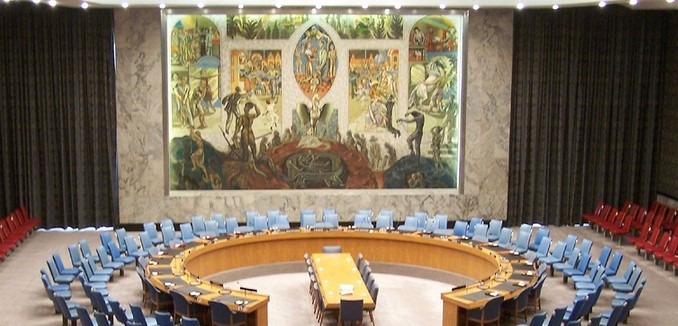An emergency meeting of the United Nations Security Council on Wednesday night condemned the death earlier that day of a Spanish peacekeeper in the Golan Heights, but failed to address the Iran-backed terrorist group Hezbollah’s rocket attack on an IDF convoy, killing two Israeli soldiers and wounding seven more.
Before the meeting, Israeli Ambassador to the United Nations Ron Prosor asked the council to condemn Hezbollah for the latest round of violence with Israel. The Times of Israel reported:
In a letter to the Security Council president, Ambassador Ron Prosor said he had repeatedly warned of “the escalating threat posed by Hezbollah,” saying it has been stockpiling weapons in southern Lebanon in contravention of UN resolution 1701, which ended hostilities between Israel and the group in 2006.
“The international community cannot ignore the threat any longer. Israel will not stand by as Hezbollah targets Israelis. Israel will not accept any attacks on its territory,” Prosor stated.
Resolution 1701, which was adopted unanimously (.pdf) to end the 2006 war between Israel and Hezbollah, called for the disarming of all militias in Lebanon and the re-establishment of the Lebanese government’s authority over the southern part of the country, and prohibited the transfer of arms to any entity other than the government in Lebanon. Hezbollah’s continued armed presence in southern Lebanon violates these three elements of the resolution. In addition, arms shipped by Iran to Hezbollah have violated numerous resolutions that call for “a ban on the export/procurement of any arms and related materiel from Iran.”
Yesterday’s cross-border attack came in the wake of escalating threats towards Israel from Iranian military officers. Hezbollah’s attack drew condemnations from Lebanese politicians as well as the wider Arab world. In a conference call hosted Wednesday by The Israel Project (which publishes The Tower), Tony Badran, a research fellow at the Foundation for Defense of Democracies, said that the attack could be seen as part of an “Iranian effort to expand into the Golan Heights.”
[Photo: Brian Watson / Flickr ]




